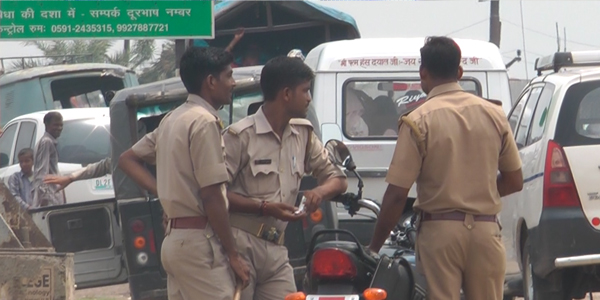
A few years ago, Pune's traffic department got its very own superhero. It would nab traffic violators and hit-and-run drivers in a jiffy. In one particular incident, this superhero even helped the police reach the accused person's home before the accused himself did. This superhero came in the form of a mobile governance system which was launched in November, 2009—TraffiCop. The system, with the help of cell phones, helped traffic cops access a vast data base and identify offenders through their number plate or driver's licence. But like other good things, this came to an early end and was discontinued in less than a year.
Why India needed TraffiCop:
The traffic police in India neither have a system to know the history of the offender, nor have access to any information of repeat offences, validity of licenses etc. Enforcement of traffic rules has always been a problem because of this lack of accessibility. So when the whole database of registered drivers alongside their list of offences was available, the cops were finally empowered. TraffiCop thus filled a gaping hole in the traffic management system.
What was TraffiCop? How did it work?
The TraffiCop system equipped the traffic policemen with hi-tech cell phones with Bluetooth printers. Once a policeman spotted an offending vehicle passing through a junction, he just sent the registration number of the vehicle to the main server through GPRS (General Packet Radio Service). Within a second of sending this number, the complete past record of that particular vehicle (which is available with the Regional Transport Office) would appear on the cop’s phone screen.
This data included the violations of traffic rules in the past. It was possible to check the information of vehicle tax, fitness, permit and other information pertaining to a vehicle.
Advantages and results
“Earlier every time we caught a traffic offender, he would say, 'I have a license, but I left it at home,' and we would have to leave him with a fine of Rs 100. Because we did not have any record of that offence with us, we could not verify whether he actually had a license,” says Surendranath Deshmukh of the Traffic Police Department who was the brain behind this and spearheaded the project. “With help of this project, we recorded these offences and next time the same person was caught, he was slapped with a higher fine for committing the crime more than once.”
Over the time period that TraffiCop was used, 5,500 licenses were suspended. “Those who drive rashly and negligently think, 'Who is keeping a record of my offences? How does it matter? Every offence is a fresh offence because there is no record of it.’ But with this, a drivers’ history and antecedents became accessible,” says Mr Deshmukh.
Other benefits
There are some fringe benefits of TraffiCop as well. One traffic policeman caught 250 stolen vehicles through this programme. Apart from this, it could be used to judge the calibre of drivers and to know their antecedents before hiring them. “In fact, insurance companies can charge a premium on those drivers who have multiple offences against them. This will act as a deterrent and actually push drivers to follow rules on the road,” says Mr Deshmukh. “It will definitely have an effect on making roads safer, as there is no room for offenders to escape.”
An abrupt end
In spite of being effective in so many ways, TraffiCop is not functional anymore. The reason, according to Mr Deshmukh, is that same old vestige of babugiri that eats away at the heart of Indian governance. “TraffiCop was helpless in front of the babugiri. I wanted it to be self-sufficient when it comes to funding. This would be done by charging a minimal amount in the fine itself. But the babus wanted to release tenders because this was a 'product' that the government was purchasing. But we had already made the product, so who else would bid a tender for it?” says Mr Deshmukh. “Ultimately I was transferred, no one took it forward in the department and TraffiCop was stopped as soon as I left.”
Although it could not be continued, Mr Deshmukh is hopeful that it will be of great use in the future. “If TraffiCop is implemented in the whole of India, then the nation's traffic cops will become one entity. Every record will be with everyone,” he says. It's only a question of India's readiness for such a progressive system.
POLL QUESTION:
Do you think TraffiCop should be re-instated and put to action across the country?